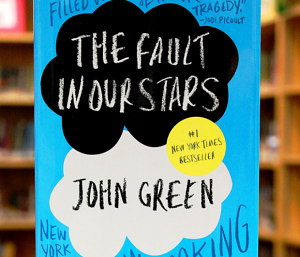There has been a lot of talk about the movie released this month, The Fault in Our Stars, based on the novel by John Green. A recent article quoted a pediatric oncologist saying the cases of cancer in the novel are "not impossible" but "would be most unusual." I guess it wouldn't be fair to comment on the book without looking at it from all angles, including the medical perspective. But, as an oncology nurse and reader, I got other things out of the story. And the unrealistic diagnoses were the furthest thing from my mind.
One of my nurse colleagues recommended the book to me, and I was hesitant. I was working full time on a busy, understaffed blood and marrow transplant unit and felt burned out. Why would I want to read a book about cancer when I live that everyday? I wanted an escape book, not an extension of my job.
Well, The Fault in Our Stars was an escape book. I fell in love with the character Hazel and her perspective on her diagnosis. To me, it was a book about being a teenager in love and not a book about cancer. It wasn't a book about doctors and nurses and patients, but it did take on an enormously heavy topic and revealed it through the eyes of a young, innocent girl. In this way, the novel made the reality of the story digestible for the reader without being depressing. And although the character's voice is young, she is also wise and insightful. Here's one of my favorite quotes from the book.
"Witness also that when we talk about literature, we do so in the present tense. When we speak of the dead, we are not so kind. You do not immortalize the lost by writing about them. Language buries but does not resurrect."
I don't know many teenagers who think like this, but Hazel's thoughts demand thoughtful reflection. I hope you all have an opportunity to read the novel or see the movie and can offer yet another perspective on the story.






